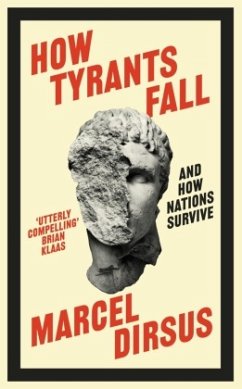
Big Caesars and Little Caesars
How They Rise and How They Fall - From Julius Caesar to Boris Johnson
Versandkostenfrei!
Versandfertig in über 4 Wochen
21,99 €
inkl. MwSt.
Weitere Ausgaben:

PAYBACK Punkte
11 °P sammeln!
Who said that dictatorship was dead? The world today is full of Strong Men and their imitators. Caesarism is alive and well. Yet in modern times it's become a strangely neglected subject. Ferdinand Mount opens up a fascinating exploration of how and why Caesars seize power and why they fall. There is a comforting illusion shared by historians and political commentators from Fukuyama back to Macaulay, Mill and Marx, that history progresses in a nice straight line towards liberal democracy or socialism, despite the odd hiccup. In reality, every democracy, however sophisticated or stable it may l...
Who said that dictatorship was dead? The world today is full of Strong Men and their imitators. Caesarism is alive and well. Yet in modern times it's become a strangely neglected subject. Ferdinand Mount opens up a fascinating exploration of how and why Caesars seize power and why they fall. There is a comforting illusion shared by historians and political commentators from Fukuyama back to Macaulay, Mill and Marx, that history progresses in a nice straight line towards liberal democracy or socialism, despite the odd hiccup. In reality, every democracy, however sophisticated or stable it may look, has been attacked or actually destroyed by a would-be Caesar, from Ancient Greece to the present day. Marx was wrong. This Caesarism is not an absurd throwback, it is an ever-present danger. There are Big Caesars who set out to achieve total social control and Little Caesars who merely want to run an agreeable kleptocracy without opposition: from Julius Caesar and Oliver Cromwell through Napoleon and Bolivar, to Mussolini, Salazar, De Gaulle and Trump. The saga of Boris Johnson and Brexit frequently crops up in this author's narrative as a vivid, if Lilliputian instance of the same phenomenon. The final part of this book describes how and why would-be Caesars come to grief, from the Gunpowder Plot to Trump's march on the Capitol and the ejection of Boris Johnson by his own MPs, and ends with a defence of the grubby glories of parliamentary politics and a thought-provoking roadmap of the way back to constitutional government.













